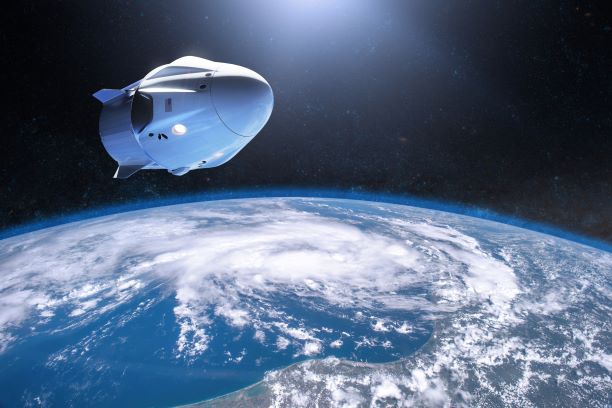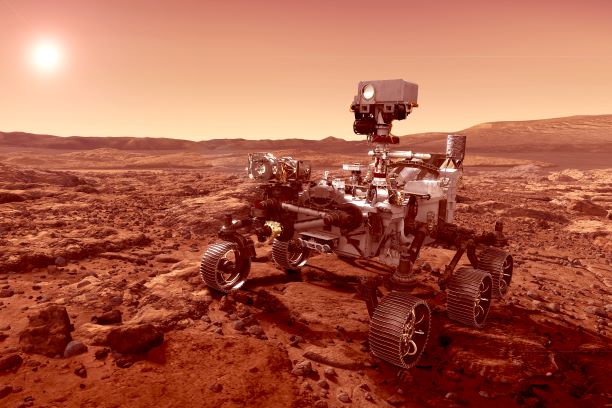 Missions to explore distant planets are bringing people together to advance scientific progress, inspire the next generation of innovators, and discover new opportunities to live and work off planet Earth. Lunar exploration has entered an exciting new era as national space agencies partner with private companies to enable our future on the Moon. NASA, for example, is working with commercial spaceflight companies including SpaceX, Blue Origin, and Astrobotic to develop robotic and crewed landers for moon exploration. Meanwhile Blue Origin aims to establish a lunar base where people could live and work.
Missions to explore distant planets are bringing people together to advance scientific progress, inspire the next generation of innovators, and discover new opportunities to live and work off planet Earth. Lunar exploration has entered an exciting new era as national space agencies partner with private companies to enable our future on the Moon. NASA, for example, is working with commercial spaceflight companies including SpaceX, Blue Origin, and Astrobotic to develop robotic and crewed landers for moon exploration. Meanwhile Blue Origin aims to establish a lunar base where people could live and work.
Mars is also a key focus for today’s explorers. Over the years, NASA has sent four robotic vehicles, called rovers, to Mars to explore the planet’s surface: Sojourner, Spirit, Opportunity, and Curiosity. Vessels from the US, Europe and India are exploring the Red Planet from orbit. In February 2021 they will be joined by three recently launched missions: NASA’s Perseverance rover, an orbiting spacecraft from the United Arab Emirates (UAE), and a rover and orbiter from China. Meanwhile the European Space Agency and the Russian federal space agency, Roscosmos, are developing a second ExoMars mission for launch in 2022.
Shaping new scientific discoveries
Advances in space exploration are underpinned by a powerful combination of human ingenuity and technology. Astrobotic Technology, for example, uses Dassault Systèmes’ solution to design and develop affordable space robotics for various lunar and planetary missions. The solution has enabled Astrobotic to develop a lunar landing spacecraft and two solar-powered rovers for exploring the equatorial and polar regions of the Moon, and to capitalize on emerging opportunities. It has attracted multiple NASA contracts to develop robots to mine the Moon for water and methane, explore lunar and Martian caves, land on asteroids, build a low-gravity facility, and study how robots can prepare a permanent NASA lunar base.
Today’s missions also include future-focused technology that may help to reach new scientific milestones. NASA’s Perseverance rover and InSight lander, for instance, carry laser retroreflectors which could one day enable scientific breakthroughs and safer, more precise landings on Mars.
Transforming life on Earth
Interplanetary exploration might be focused on enabling a future for humans in space, but these missions are also helping to create new possibilities for people on Earth. Launched in 2020, the UAE’s “Hope” mission to Mars shows how space exploration can be the key to economic transformation on Earth. Faced with a lack of space exploration experience and planetary science capacity, the UAE embarked upon the mission to diversify its economy by building the skills it needed. It consulted with Mars experts around the world and partnered with the University of Colorado at Boulder to design its spacecraft. As well as launching the mission on time and within budget, the UAE has boosted its science capacity, created new manufacturing capabilities beyond space exploration, and inspired many of its young people to pursue careers in science and innovation.
Reaching for the stars
Today’s major exploration missions may be focused on the Moon and Mars, but new horizons are already emerging. In 2020, for instance, astronomers detected phosphine gas in the clouds around Venus, suggesting that life could exist there. Innovative start-ups, with the agility to move faster than big space agencies, are ready to take the lead on initial investigation. Rocket Lab, a US aerospace manufacturer and small satellite launch company, plans to launch its mission to explore Venus in 2023 using an atmospheric entry probe to observe the planet’s clouds.
Joining forces for a future off Earth
As the latest missions show, space exploration is not simply an aerospace challenge. It involves a spectrum disciplines such as life sciences, microbiology, geology and climatology. And beyond that, it is a challenge for the whole of society to enable future generations to live and work off planet Earth. As new missions continue to explore our neighboring planets, today’s collaborative innovation holds the key to our interplanetary future.
Want to know more?
Discover how Dassault Systèmes helps to accelerate space companies’ ability to design a system right the first time with the required quality, reliability and safety at lower cost: https://www.3ds.com/industries/aerospace-defense/space

